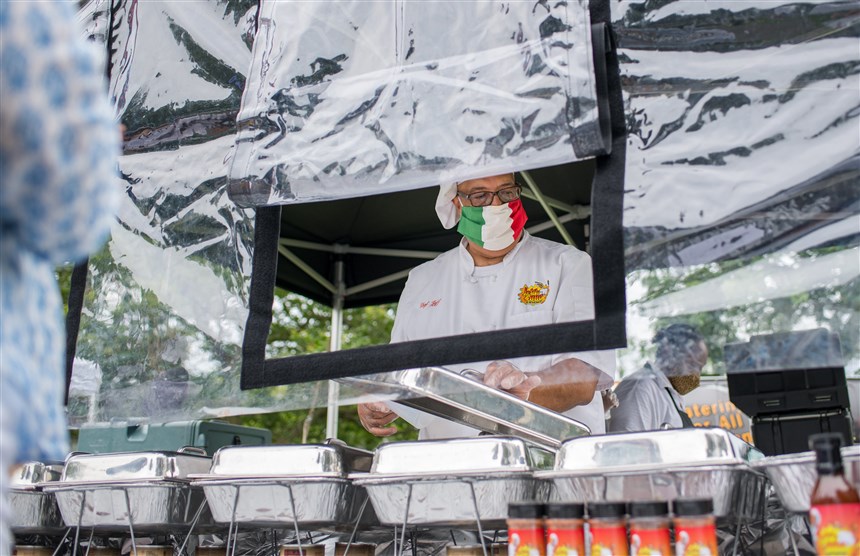For richer and poorer, Uncle Sam& #39;s coronavirus response widened the gulf.
Experts say there are strong reasons to believe less-well-to-do business owners have suffered disproportionately and gotten less help from the government. https://nbcnews.to/2PnoPpN ">https://nbcnews.to/2PnoPpN&q... (1/6) #NBCNewsThreads
Experts say there are strong reasons to believe less-well-to-do business owners have suffered disproportionately and gotten less help from the government. https://nbcnews.to/2PnoPpN ">https://nbcnews.to/2PnoPpN&q... (1/6) #NBCNewsThreads
For two decades, Jeff Esaw of Stratford, Connecticut, has been serving up Southern barbecue. But economic trends haven& #39;t been kind.
He estimates he lost 80 percent or more of his overall revenue from his catering business due to COVID-19. (2/6)
He estimates he lost 80 percent or more of his overall revenue from his catering business due to COVID-19. (2/6)
Esaw wasn& #39;t able to get a PPP loan when he applied through the local branch of a national bank, he said. He also couldn& #39;t get unemployment insurance, and he fell thousands of dollars behind on his mortgage before negotiating for partial forbearance. (3/6)
However, Peter Brant& #39;s White Birch Farm in Greenwich, Connecticut, had no problem getting a taxpayer-backed windfall. The sprawling estate houses one of his family& #39;s mansions and a thoroughbred facility for his polo horses. https://nbcnews.to/2PnoPpN ">https://nbcnews.to/2PnoPpN&q... (4/6)
Small Business Administration records show the horse farm received a loan of $350,000 to $1 million to support wages for a staff of about five dozen people.
Later, White Birch Farm borrowed $25.7 million from JPMorgan Chase to buy a $47 million estate in Palm Beach, FL. (5/6)
Later, White Birch Farm borrowed $25.7 million from JPMorgan Chase to buy a $47 million estate in Palm Beach, FL. (5/6)

 Read on Twitter
Read on Twitter



